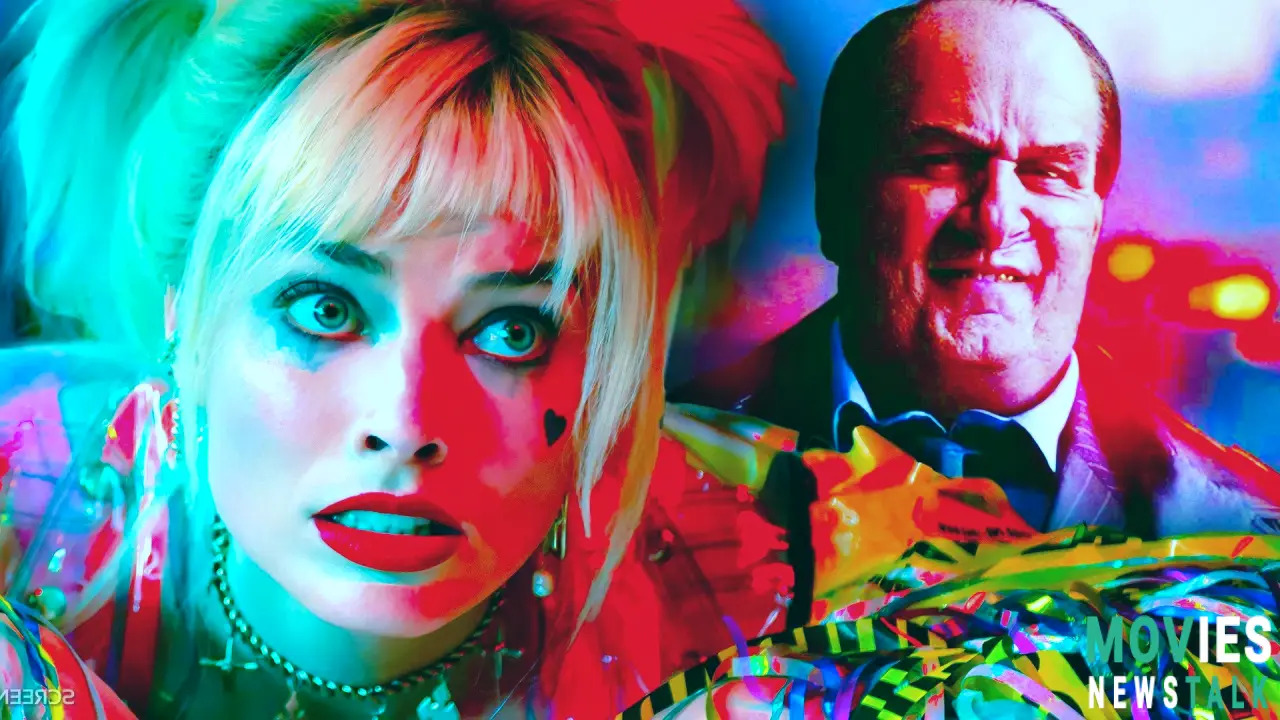The Penguin Flips the Harley Quinn Script: A Dark Story DC Needs to See!
Why Harley Quinn’s Story Needs More Darkness (and The Penguin Shows Us How)
Harley Quinn is a hugely popular character. Margot Robbie's portrayal in the DCEU was a favorite for many people. I sure loved her! I have high hopes for her return to the DCU—especially after other DCEU actors have already returned and this looks highly possible. But there is an important element missing – the really dark stuff.
There’s so much untapped potential in that incredible character, who is deeply complex and very, very intense. We’ve seen hints–that tortured past, the messed-up relationship with theJoker(the movie even hints at this and in brief flashbacks, with Jared Leto's portrayal as the Joker), but the trauma is just never explored fully enough! There's potential to delve deep intoHarley'shistory and use those things which already exist to craft a truly stunning, character-driven story that is well-understood, yet emotionally challenging for many people. I have some serious thoughts regarding those specific story arcs related to Harley Quinn’s abuse, in various depictions.
I'd love to see Robbie's Harley develop that amazing relationship with Poison Ivy (like in the comics and that awesome animated series). Maybe joining theGotham City Sirens? I was totally hoping for that!
The Penguin's Sofia Falcone: A Masterclass in Storytelling
I loveColin Farrell's PenguininThe Penguin! But another character became unexpectedly far more compelling: Cristin Milioti's Sofia Falcone.She’s incredibly intriguing, with tons of untapped potential; her mysterious time atArkham State Hospital—something deeply explored in“Cent’Anni”—shows exactly why! This story showcases exactly why focusing on those troubled histories, the intensely tragic past moments, produces really good storytelling and should not be omitted to show those complexities. Her story arc could become a perfect example of storytelling that might not work in every possible context but totally does here!
Sofia’s journey shows corruption; her own father sets her up. Trapped inArkhamfor ten years. And suffering intense torture! This echoesHarley Quinn'sexperiences with theJoker, emphasizing this very powerful narrative parallel, making it extremely powerful in this way and easily recognizable. This specific choice is critically important to build the intended drama, without requiring any additional exposition.
Sofia’s Revenge: A Justified Act of Empowerment
Sofia's eventual vengeance after all that she experienced—that's not merely something enjoyable but necessary! And its impact is hugely successful. This doesn't show only a justified reaction, yet a brilliant narrative choice to use these complex emotions and situations effectively: After decades of mistreatment and torture, those choices made in this instance were critically justified. The entire audience empathizes and connects with her after that revelation of the immense pain Sofia has endured throughout this timeline and after she rises to assert dominance and finally take control of her life once more, against those individuals involved in hurting her. Her eventual actions only emphasize the narrative significance behind that previous torture that greatly affects how viewers sympathize with Sofia’s ultimate decision.
The Penguin’s Twist: A Flipped Perspective on Abuse
That relationship betweenSofiaandDr. Julian Rush(Theo Rossi), this mirrorsHarley Quinn's with theJoker—but switched!Sofia’s the criminal! And the doctor falls for her. Later,Rushhelps freeSofiaand becomes deeply involved in her revenge plan; This changes things incredibly, using this kind of mirror structure and similar tropes but with altered power dynamics to enhance the overall importance of the story arc.
Conclusion: Harley Quinn Deserves This Kind of Deep Exploration
The Penguin'sSofia Falconestory should be the blueprint for how to do this forHarley Quinn. It isn't the only possible choice, but its success makes the specific methods it utilizes worth remembering and learning from, emphasizing its creativity and overall use of various narrative techniques. That darkness; the exploration of intense abuse and eventual empowerment really resonated. The DCUneeds to learn from that greatness– focusing on what the writers inThe Penguinwere able to do, and how it really worked well without requiring many changes. If done well, they'd generate a more nuanced, even more popular and ultimately unforgettable story ofHarley Quinn. A well-needed and highly deserved change. And that emotional weight, showing those profound impacts of those specific plot moments really setsSofia'sstory apart and serves as inspiration that any similar story could also become.

